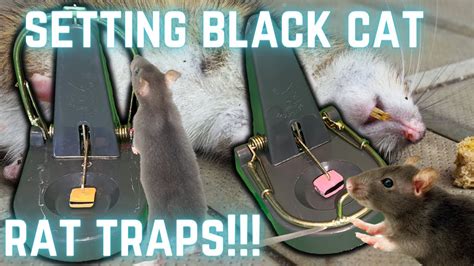Rat Bait: Setting Realistic Expectations
Rodents in your home or business are a serious problem, and rat bait is often the first line of defense. However, it's crucial to understand that rat bait isn't a magic bullet. Effective rodent control requires a realistic approach, understanding the limitations of bait and combining it with other strategies for best results. This article will explore the realistic expectations you should have when using rat bait, addressing common questions and concerns.
What are the limitations of rat bait?
Rat bait, while effective, isn't a guaranteed, overnight solution. Its success depends on several factors, including the type of bait, the species of rodent, the size of the infestation, and the environment. Some limitations include:
- Not all rats will consume the bait: Rats are intelligent and wary creatures. They might avoid unfamiliar objects, especially if food sources are readily available elsewhere. A significant portion of the rodent population might not consume the bait initially.
- Bait shyness: If some rats die after consuming bait, the survivors may develop a learned aversion to the bait, making subsequent control more challenging. This is known as bait shyness.
- Bait placement is critical: Incorrect placement can render even the most potent bait useless. Rats need to easily access and consume it without feeling threatened.
- Multiple applications may be needed: A single application might not eliminate an entire infestation. You might need to reapply the bait over several days or weeks to achieve the desired effect.
- Not all baits are created equal: Different baits contain different active ingredients and attractants. Some are more effective against certain rodent species than others.
How long does it take for rat bait to work?
There's no single answer to this question. The time it takes for rat bait to work depends on several factors, including the type of bait, the rodent's metabolism, and the amount consumed. While some rats might die within a few days, it could take several weeks for a significant impact on the population. Consistent monitoring and bait replenishment are crucial.
What if I don't see any dead rats?
This doesn't necessarily mean the bait isn't working. Rats often die in hidden locations, making it difficult to observe their demise. The reduction in rodent activity (e.g., droppings, gnawing marks) is a better indicator of success than finding dead rats. However, if you see no signs of reduction in activity after several weeks of consistent bait application, reassess your approach.
What are the safest ways to use rat bait?
Safety should always be the top priority when using rat bait. Always:
- Keep bait out of reach of children and pets. Use bait stations to secure the bait.
- Follow the manufacturer's instructions carefully. This includes dosage, placement, and safety precautions.
- Wear gloves and protective clothing when handling the bait.
- Dispose of used bait and dead rodents appropriately.
What other methods can I use to control rats besides bait?
Rat bait is most effective when part of a comprehensive rodent control strategy. This might include:
- Identifying and eliminating entry points: Seal any cracks or holes that rodents use to enter your property.
- Maintaining cleanliness: Remove clutter, food scraps, and standing water to eliminate potential food and shelter sources.
- Trapping: Trapping can supplement bait and provide a more immediate reduction in rodent numbers.
- Professional pest control: If you're struggling to control the infestation, a professional pest control service can provide expert advice and treatment.
Conclusion
Rat bait can be an effective tool in rodent control, but it's crucial to have realistic expectations. Understanding its limitations, employing safe handling practices, and combining it with other control methods will dramatically increase your chances of success. Remember, patience and persistence are key. If you're unsure about any aspect of rodent control, consult a professional pest control service. They can offer tailored advice based on your specific situation.

